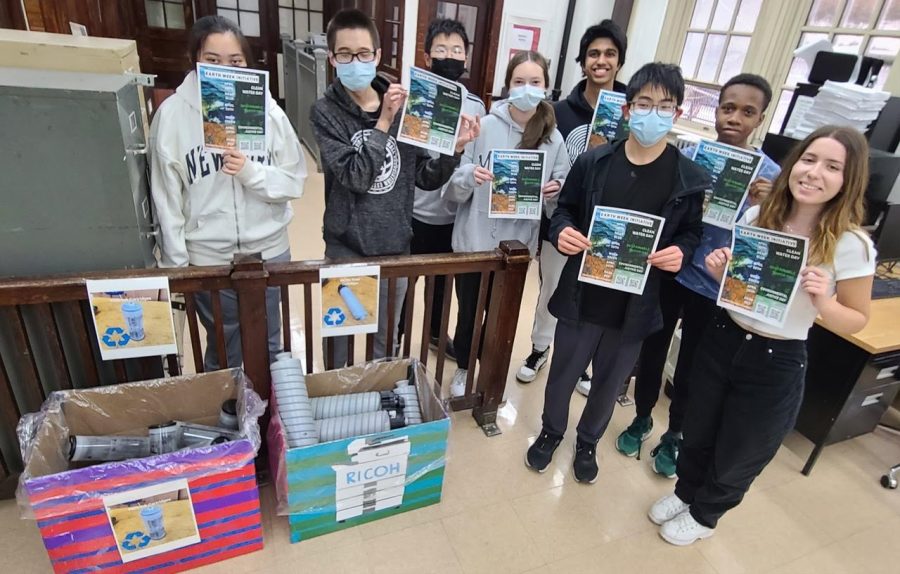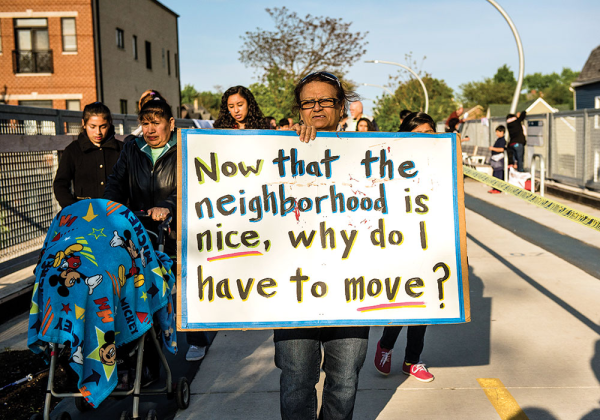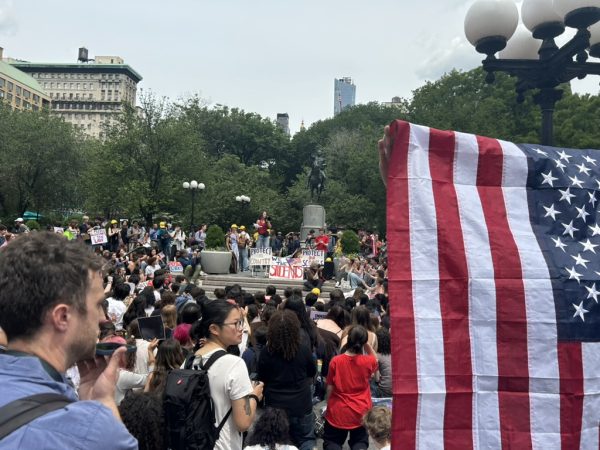The Tech Sustainability Committee
In September, Tech’s Student Government Organization (SGO) established the Tech Sustainability Committee, an offshoot of last year’s Sustainability Council. The committee is tasked with decreasing the overall carbon footprint of the school through methods including monitoring and recycling.
Mr. Schell, a co-advisor and one of the founders of the committee, said that he wanted to “elevate the club to student government with an elevated platform” and that the council is for “anyone interested in talking about waste issues.” Moreover, the committee is focused on how to achieve sustainability, with goals like 100 percent recycling in the school by putting recycling bins throughout the school and educating students and faculty on sorting metals, plastics, and other waste.
Mr. Richard Capozzi, the other co-advisor of the committee, got into the sustainability committee because he “was interested in sustainability and recycling.” In order to elevate the sustainability committee’s goals, he “realized that he needed to apply for SGO status.” The Sustainability Council gave a presentation to the SGO, and they were accepted. Capozzi can now send a representative advocating for the sustainability council’s plans in SGO meetings.
Khandaker Abid, the president of the Tech Sustainability Committee, got into the sustainability committee because he wanted a place “to advocate as an environmentalist.” One of his jobs as the president of the Tech Sustainability Committee is to be that representative that goes to SGO meetings.
A series of setbacks caused scale-downs to their universal recycling plan. One of the biggest problems was that Mr. Schell was supposed to have the help of members from GrowNYC, an environmental organization dedicated to helping communities transition away from zero waste. However, those members have been assigned to other schools.
Another problem is that the SGO has taken time to implement universal recycling in the school. This goes with the fact that it is tough to establish a culture of recycling. In order to recycle, students need to sort their trash, which is a tough request for some, as there will always be a student that will knowingly disobey the rules, like putting the wrong things in the wrong bin, thus contaminating the items in the bin.
The final problem is the bureaucracy of the DOE school system. This year, Capozzi sent an open letter to the city stating that “Brooklyn Tech does not recycle and that they would like their help in transitioning Brooklyn Tech to recycling.” But after speaking to multiple people, Capozzi cannot get a response, as his request is still being processed. The expected response date is January 4th, 2023.
Despite this, Mr. Schell is positive that the council can move forward. “There is a road to opportunity, despite a question mark that hangs in the balance.” He hopes that he can implement a fully universal recycling system in the school by the end of the school year.
Mr. Capozzi agrees, citing the recent accomplishments in spite of the problems, “We presented our plan to recycle the ink cartridges to Newman, and he agreed.” Mr. Capozzi said, “Now, those ink cartridges are in a bag, and are placed for curbside recycling.”
Unfortunately, very few people know that the Sustainability Committee exists or what its mission is. When asked about how hidden the sustainability committee can feel to the general school population, Mr. Capozzi and Mr. Schell noted that the reason this is now a branch of the SGO is to “elevate” their platform to all of BTHS. Mr. Capozzi continued, “Hopefully, with a higher profile, faculty and students could work together to change the culture of recycling.”
Despite all of the challenges that a sustainability committee can face, it is imperative that every school has one. Moreover, the sustainability committee should be given more power to implement what they want. After all, with climate change’s effects on the world, we must start being more conscious of our environmental footprint. Climate change is a major problem of the 21st Century, which can cause droughts, floods, rising sea levels, and more CO2 in the atmosphere, all of which can be detrimental to the economy and human health, all rising sea levels and floods can devastate vital cities, like New York, and droughts can cause the already rising price of food to explode. To slow climate change, we need to start somewhere, and we can begin with our schools.
In NYC, schools produce 40,000 tons of waste per year, enough to fill a football field and then some. Since Brooklyn Tech is the biggest school in the system, it has the greatest waste stream. Although that waste stream is only a tiny fraction of the 14 million tons of waste that NYC produces, reducing waste in schools can teach students about the importance of recycling and being sustainable. Students will also learn that constant action on recycling and commitment to environmentally friendly is the only way to truly lower their carbon footprint. This will have an exponential impact on the population in the future, with future generations being more likely to reduce their waste. The Brooklyn Tech Sustainability Committee is trying to do just that, making a generational shift in our approach to recycling. That involves educating students on how to sort waste and bringing true recycling to Brooklyn Tech.
Edward Zheng (he/him), is an editor for the opinion section of the Survey. Edward believes that great...











































